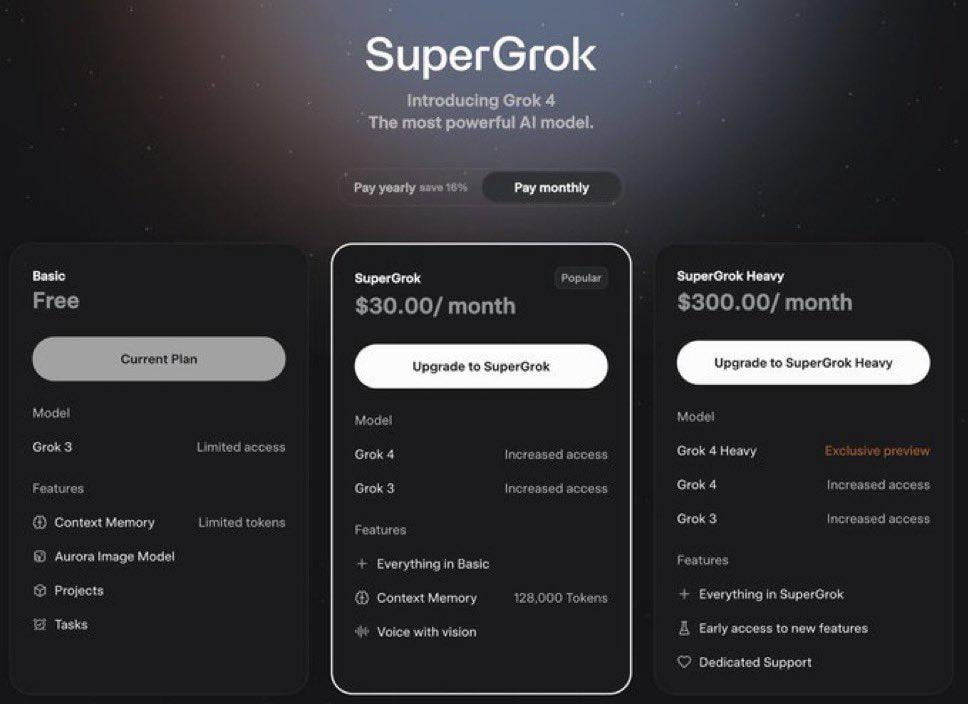Last Week in AI #315 - Grok 4, Windsurf->Google, Comet
Elon Musk’s xAI launches Grok 4 alongside a $300 monthly subscription, OpenAI’s Windsurf deal is off — and Windsurf’s CEO is going to Google, Replit Launches New Feature for its Agent
Top News
Elon Musk’s xAI launches Grok 4 alongside a $300 monthly subscription
xAI has launched its latest AI model, Grok 4, and a new $300-per-month AI subscription plan, SuperGrok Heavy. Grok 4 is designed to compete with models like OpenAI’s ChatGPT and Google’s Gemini, with capabilities to analyze images and respond to questions. In addition to Grok 4…



